The stress response is as internal protective mechanism. This mechanism tells us if we are safe or in danger. It is sometimes referred to as the three F’s or fight-flight-freeze. However, before I discuss the stress response: fight-flight-freeze, let’s have a look at stress.
What is Stress?
There are many definitions of stress including –
- “pressure or tension exerted on a material object” and “a state of mental or emotional strain or tension resulting from adverse or demanding circumstances.” ~ Google
- “a physical, chemical, or emotional factor that causes bodily or mental tension and may be a factor in disease causation” ~ Merriam Webster
- “A state of mental or emotional strain or tension resulting from adverse or demanding circumstances.” ~ Oxford Dictionaries
- “In a medical or biological context stress is a physical, mental, or emotional factor that causes bodily or mental tension.” ~ MedicineNet.com
- “non-specific response of the body to any demand for change.” and “the rate of wear and tear on the body.” ~ Hans Selye
The 3-Stage General Adaptation Syndrome
The way our bodies adapt to stress is called the General Adaption Syndrome. According to Selye, the stress response is the body’s “non-specific reaction to demands made to its internal equilibrium.” The stress damage results from prolonged exposure to the stressor and happens in 3 stages –
- Alarm reaction,
- Resistance, and
- Exhaustion.
Stage 1: Alarm Reaction
- The alarm reaction is the initial stage of the general adaptation syndrome (i.e. a reaction to a stressor).
- When encountering a stressor, your body prepares with a “fight-or-flight-or-freeze” response as it is trying to protect itself or flee from a challenging situation or stimulus (i.e. the stressor).
- In the book Stress and the Manager, Karl Albrecht describes the stress reaction as –
“a co-ordinated mobilisation of the entire human body to meet the requirements of life and death struggle or of rapid escape from the situation. The intensity of the stress reaction depends on the brain’s perception of the severity of the situation.” (p. 796).
Stage 2: Resistance
- Resistance is the second stage of the general adaptation syndrome. This is where the body tries to resist and compensates to the stressor/s it is exposed to.
- Depending on the stressor, changes can take place on many levels. For example – if the stressor is money, you could start to cut back on buying and eating nutritious food. If this continues and your situation doesn’t change, this can then have an impact on your physical, emotional and mental wellbeing.
Stage 3: Exhaustion
- Exhaustion is the third stage.
- If the stressor continues beyond the bodies’ capacity to deal with stress, you exhaust your resources and become susceptible to disease and even death in extreme circumstances.
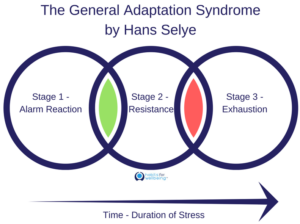
Making Empowering Choices
I used to think we made choices like the following diagram –
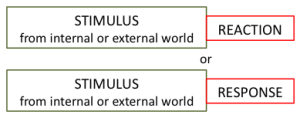
I now realise we have a choice between the stimulus and the response –
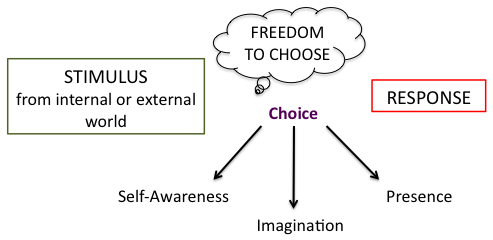
Realising this has made such a difference in my life when it comes to stress.
The Stress Response: Fight-Flight-Freeze
As you can see by the above diagrams, the stress response starts with a trigger or stumulus from the internal or external world. Quickly we decide if we are safe or sense a threat and may become unsafe. If we decide we are safe, we can let go of any tension we might be holding, make the next choice and possibly continue on with what we are doing.
However, if we sense a threat or harmful event and identify we might be in danger we then can go in to fight, flight or freeze. These states are –
- Fight – where we might feel like we can’t handle the situation by ourselves and have some thoughts like “I’ll do it my way”, “you can’t make me do that”, feelings of anger / rage, voice can have a fighting tonality to it and behaviours like clenching fists, crying or a clenched jaw,
- Flight – when we want to flee from a situation, again we may sense we cannot handle the situation and have some thoughts like “I can’t do this”, “life is too hard” or “something is wrong with me”, feeling tense, voice can have an anxious or high tonality to it and behaviours like shallow breathing, being restless and fidgety.
- Freeze – when we freeze in a situation, again we may sense we cannot handle the situation and have some thoughts like “I don’t know”, “I’m not sure”, feelings like cold / frozen or numbness, voice can have a frozen tonality to it, sense of stiffness in the body, increase heart-rate and behaviours like holding the breath and heaviness within body.
Over to You…
I hope this post has given you some insight in to the stress response: fight-flight-freeze. If you choose to look at how you cope with stress, make sure you bring your self-compassion 🙂 Remember – “Our lives are the sum of the total choices we have made” ~ Wayne Dyer and in each moment we have the freedom to make a different choice.
If you are ready to reclaim your courage and take the next step towards freedom and living wholeheartedly, why not join our Toolkit?
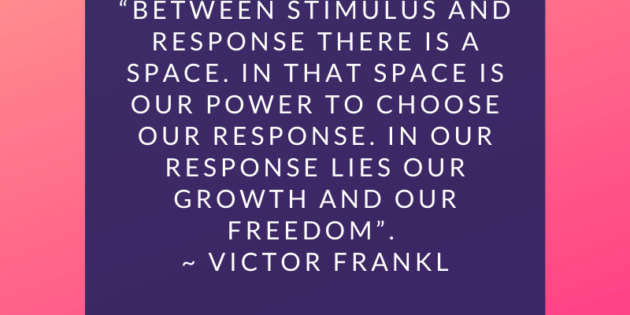




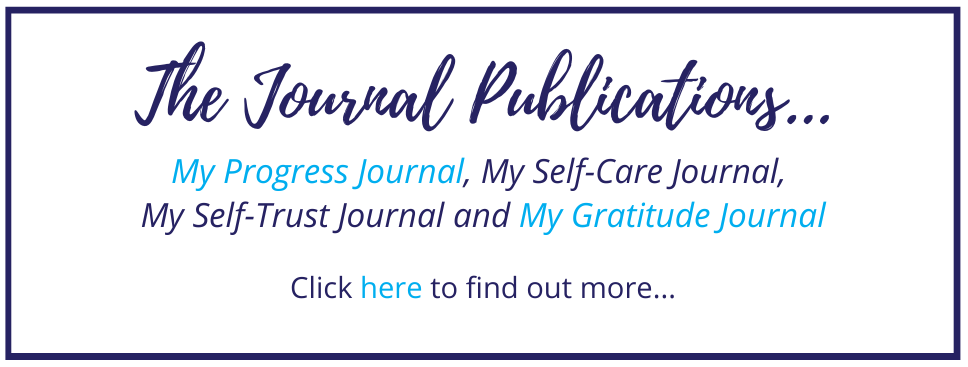



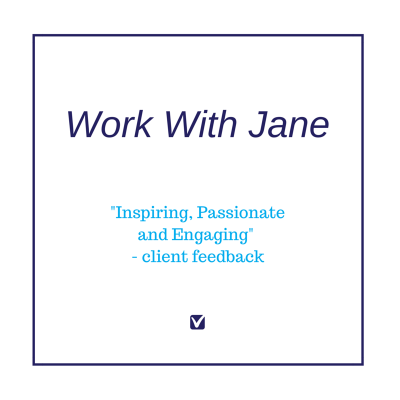







2 Comments
Ken
April 30, 2020Thank you for the outstanding work.
Jane
May 16, 2020Thank you Ken!
Leave A Response